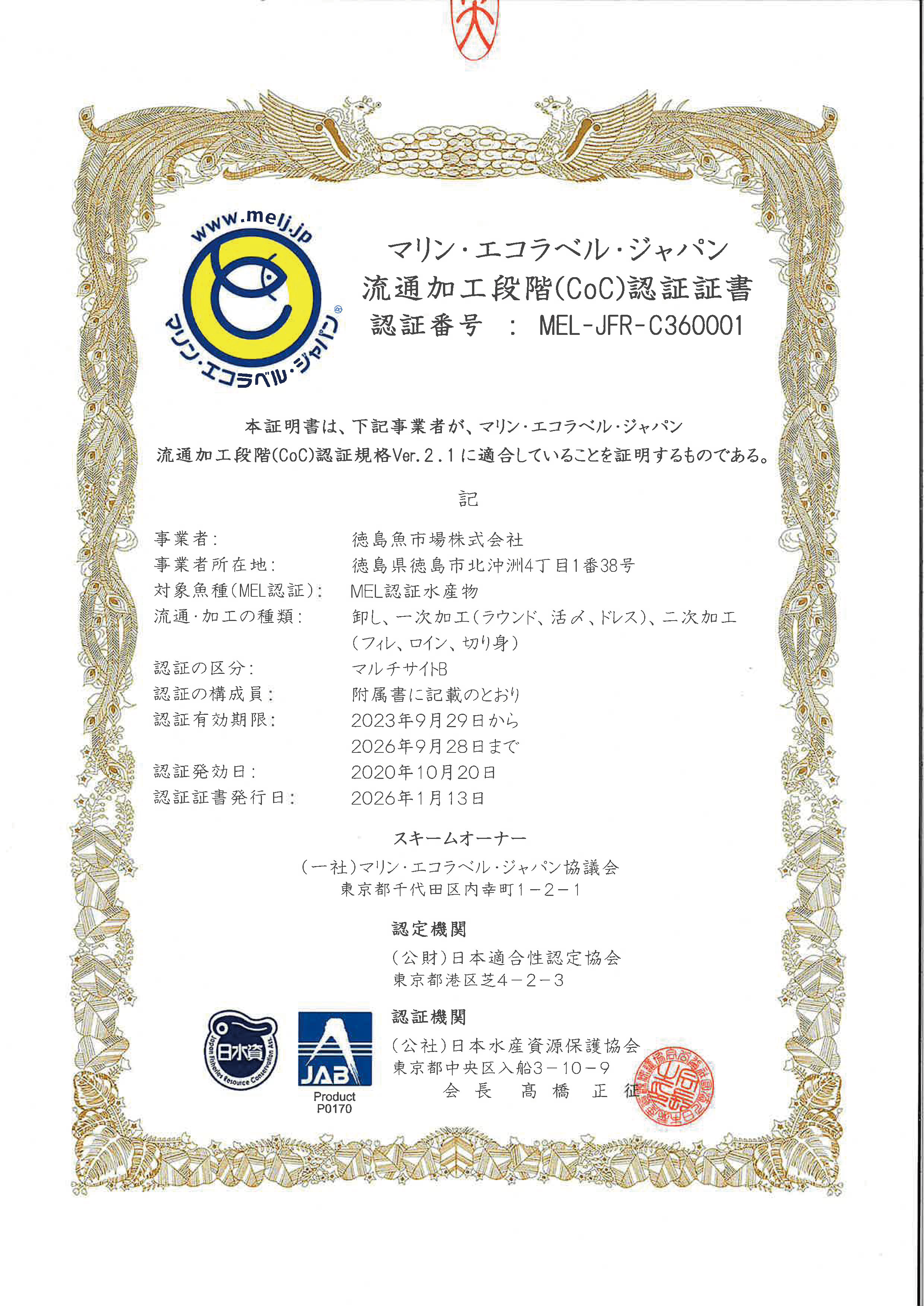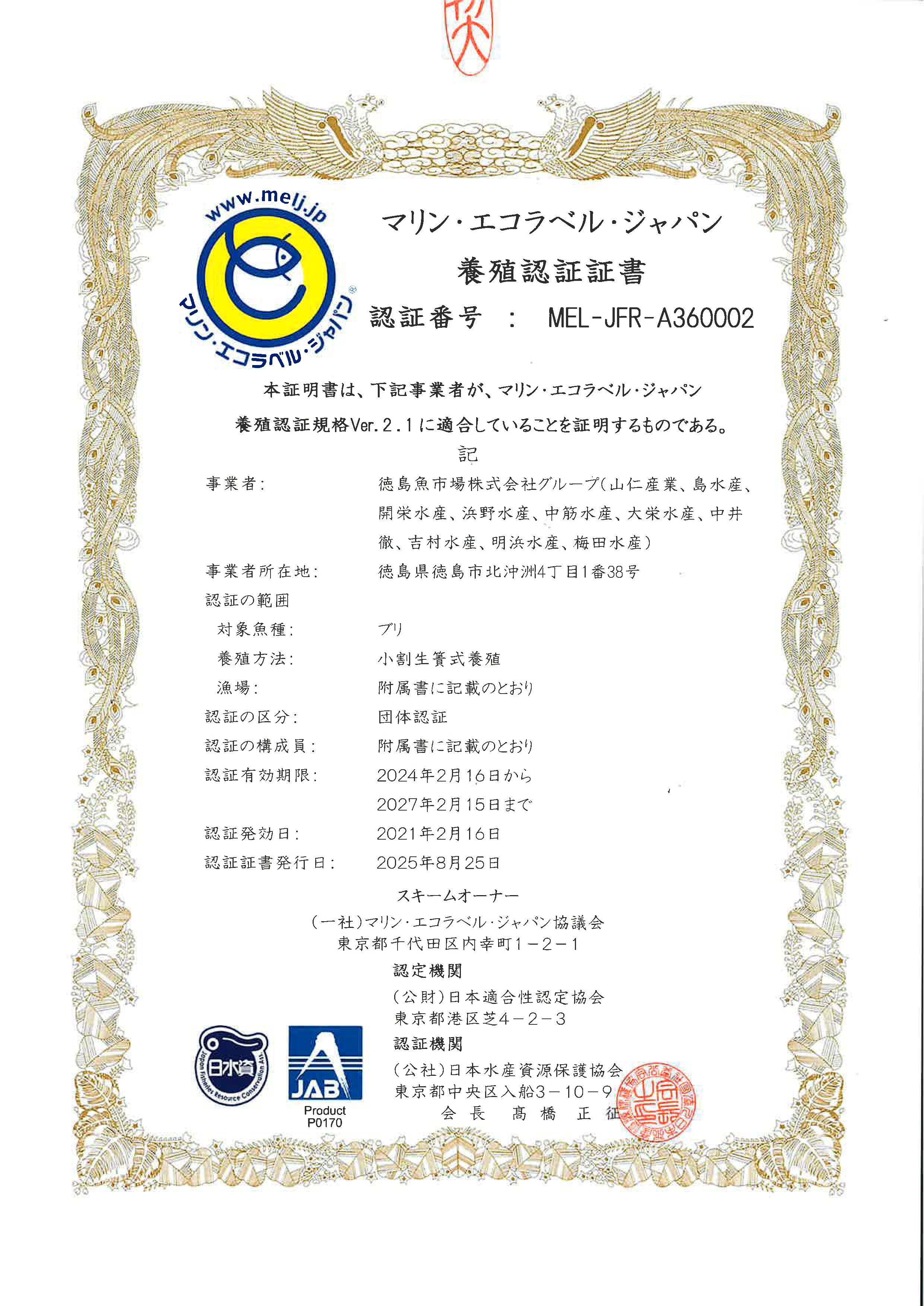Introduction of MEL Initiatives at Tokushima Uoichiba Co.,Ltd
The following is an article on our company by the Marine Eco-Label Japan Council.
- Tokushima Uoichiba, where all of Tokushima's marine products are gathered.
-
After the auction was over, the orange lighting seemed to bring a sense of relief to the market. I visited Tokushima Uoichiba in March, when the cold weather had abated. The person who greeted me was Mr. Soichi Yoshimoto, president of Tokushima Uoichiba Co.,Ltd.
Tokushima Uoichiba is a wholesaler of marine products at the Tokushima Central Wholesale Market, commonly known as a consignee. The company collects fish caught from various beaches in Tokushima Prefecture and sells them to the market's intermediate wholesalers through auctions.
- Expanding business by valuing the market distribution system
- The Japanese distribution system is that the consignee collects the fish and the intermediate wholesaler sells the fish to retailers. This system is extremely efficient because each role is clearly defined. Recently, there is a trend toward direct sales, but the market distribution system still plays an important role. Tokushima Uoichiba is focusing on strengthening its efforts to take advantage of this market distribution system.
- Becoming a General Trading Company of Fisheries
-
“Previously, receiving would end with the sale of the collected fish to the wholesaler, but the scope of our business today is much broader, both upstream and downstream.” Mr. Yoshimoto, president of the company, said in beginning of the interview. The main role of a consignee is to serve as a distribution center that provides a stable supply of fresh food products and to form appropriate prices through auctions. Mr. Yoshimoto says, “I don't stay in the market all the time. I go to the production areas to meet the producers and accompany them in the purchase of farmed fry. Recently, I have established a wholesale company in Tokyo's Ota Market, where I also process and sell fish.”
In addition to its regular market operations, Tokushima Uoichiba is a general trading company of marine products, working together with aquaculture companies in and outside the prefecture to produce its original brand of " Sudachi buri* " and developing its own sales channels in Tokyo.- Communication with
Producers - Buying farmed fry
- Processing and
sales of fish - Production of original
brand “Sudachi buri”



- Communication with
- Launched the “Sudachi buri” brand of farmed fish on his own.
- He is particularly focusing on our original brand of farmed fish, “Sudachi buri”. The “Sudachi buri” is farmed by producers of the Kitanada Fisheries Cooperative, located on the west side of Naruto Strait, which is said to have the most rapid currents in Japan. Mr. Yoshimoto, who was in charge of farmed fish at the Tokushima Uoichiba at the time, personally entered the market to develop the brand and has a strong emotion to the fish. One of the special features of the brand is the use of the peel of this fruit has the exclusively prepared food. Mr. Yoshimoto is responsible for every detail of the project, including being present at the photo shoot for the poster at a local ryotei (Japanese-style restaurant). Even being president now , he is still very thorough, always visiting the production area when producers are introducing fry.
- Strengthening sales to the Tokyo metropolitan area
- Stepping into the production stage alone does not make us a general trading company.
In July 2020, the Group's intermediate wholesaler, Edo Asahi Corporation, was established within the Ota Market in Tokyo. He has strengthened his sales activities targeting mass merchandisers and restaurants in the Tokyo metropolitan area.The company has established processing facilities on the premises to meet the detailed requests of customers, and has built a system that enables to provide fresh seafood products by processing them in Ota, which is close to the place of consumption. - Aiming for all around satisfaction business
-
It is a very rare case for a local wholesale market to get involved from upstream to downstream and engage in branding and sales to this extent. Behind the aggressive expansion of the business was the experience of Mr. Yoshida, who originally worked in the fresh fish department of a major mass retailer.
When you are at the market, you inevitably hear the voices of many buyers and wholesalers with whom you have direct dealings. There is no doubt that these professionals are serious and reliable connoisseurs. However, sometimes their perspective may differ from what the end consumer is looking for in real time. Tokushima Uoichiba is branding itself to meet the needs of consumers by listening to the voices of end consumers directly as much as possible, and then communicating this to the producers. If the value of the marine products handled by the Tokushima Uoichiba can be increased, the amount handled by the market will increase, and buyers and intermediate wholesalers will be able to purchase value-added products, leading to good for all around satisfaction business.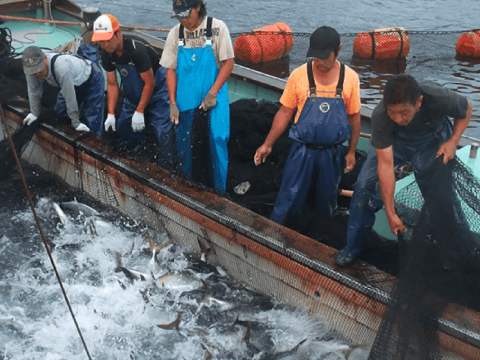
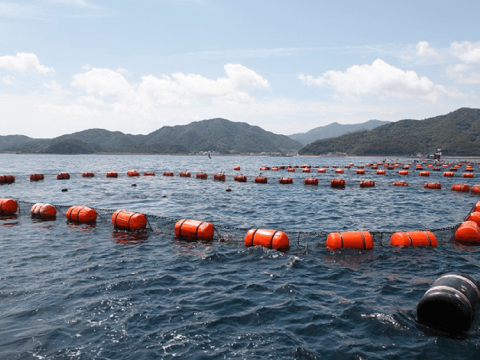
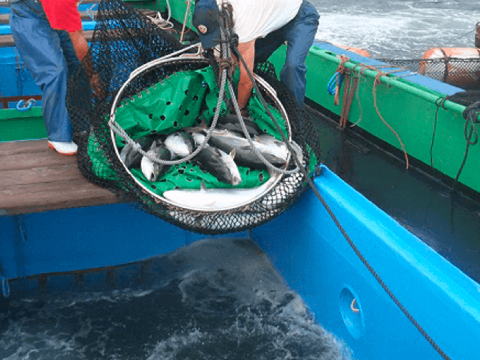
- Environmentally friendly fishing industry that we have been working on for more than 20 years
- The company is also enthusiastic about environmental initiatives. Tokushima Uoichiba has acquired MEL certification, a certification system for sustainability-conscious marine products, not only within the market itself, but also with the involvement of producers who farm fish together as a group. Nowadays, environmental considerations are being emphasized even in the seafood industry, but it is surprising that Tokushima Uoichiba has been focusing on environmentally friendly fisheries for more than 20 years and has been working together with local producers to achieve this goal.
- Even without certification mark
-
Under the current fishery certification system, all businesses that handle the fishery products must obtain certification before the certification mark can be placed on the final product. Even if the certification is obtained, their seafood products may not be able to be sold as certified, which is a major challenge for the fishery certification system. Nevertheless, Mr. Yoshimoto still emphasize the significance of the fishery certification program. “As market operators, it is natural for us to pay attention to the environment. If we cannot catch fish due to environmental pollution, we will not be able to handle fish at our own fish market. Eventually, we may not be able to operate the market. Even if we cannot sell fish with the mark on the store shelves, the awareness of the fishermen on the production floor has changed dramatically as a result of our efforts in fisheries certification. For us, this change was what was important.”
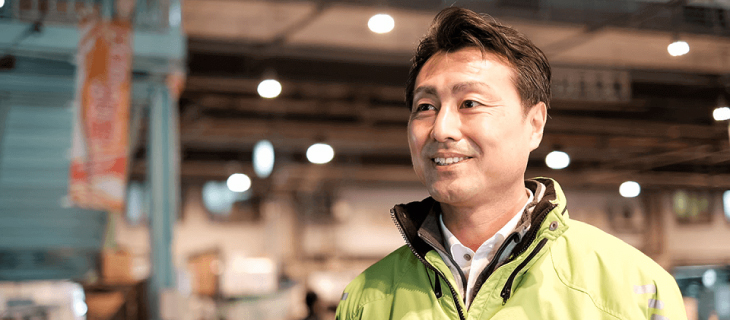
- In the background of one fish
- Finally, Mr. Yoshimoto also spoke about the fisheries certification system as follows.
“The business of simply selling the fish caught by fishermen at the market and just handing over to the middlemen is coming to an end. More than ever, there is a need to work with producers to provide what consumers want and, above all, to maintain a world in which people can eat fish forever. The Fisheries Certification System is also a system that allows consumers to confirm what kind of ingenuity and hard work producers put into catching and raising fish. Many people are involved in the process of bringing a single fish to the table, and as many people as there are involved put their heart and soul into it. We, the market people, would like to deliver to our customers even the thoughts and feelings that are put into our marine products.”
The interview with Mr. Yoshida made me strongly feel that this is also the attitude required of those of us who create certification systems.
We have acquired "Fisheries Eco-Label" certification.
Tokushima Uoichiba has received the following certifications in recognition of its commitment to safe and secure aquaculture and environmentally friendly sustainable use of marine resources.
- Marine Ecolabel Japan (MEL)
- Distribution and Processing Stage (CoC) Certification
- Marine Ecolabel Japan (MEL)
- Aquaculture Certification
